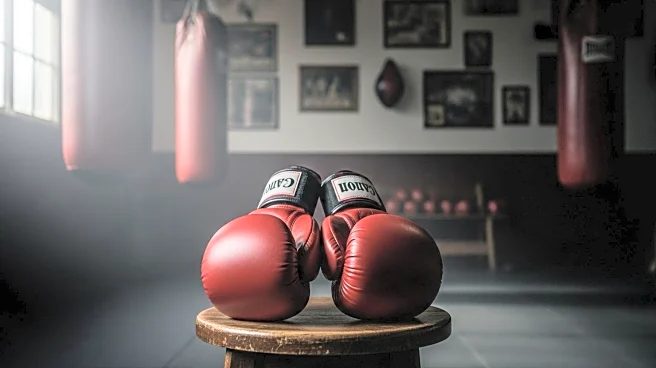What's Happening?
Ricky Hatton, a renowned boxing figure, has died at the age of 46. Greater Manchester Police discovered Hatton deceased at his home on Sunday morning, with no suspicious circumstances reported. Hatton was preparing for a comeback fight against Eisa Al Dah scheduled for December 2, marking his first return to the ring since 2012. Throughout his career, Hatton achieved significant success, including victories in the welterweight and light-welterweight divisions. He was known for his impressive winning streak of 43 consecutive matches, which included notable victories over Kostya Tszyu and Carlos Maussa. Hatton faced high-profile opponents such as Floyd Mayweather Jr. and Manny Pacquiao, although he was defeated in both encounters. After retiring, Hatton openly discussed his struggles with depression and substance abuse.
Why It's Important?
Ricky Hatton's death marks the loss of a significant figure in the boxing world, known for his dynamic fighting style and charismatic personality. His career achievements and battles against top-tier opponents have left a lasting impact on the sport. Hatton's openness about his personal struggles has also highlighted important issues related to mental health and addiction, resonating with many fans and athletes. His passing may prompt further discussions on the support systems available for retired athletes dealing with similar challenges.
What's Next?
The boxing community is likely to pay tribute to Hatton's legacy, celebrating his contributions to the sport. Memorials and tributes from fellow athletes and fans are expected, reflecting on his career and personal journey. Discussions around mental health support for athletes may gain momentum, potentially influencing policy changes or initiatives aimed at providing better resources for those in need.









